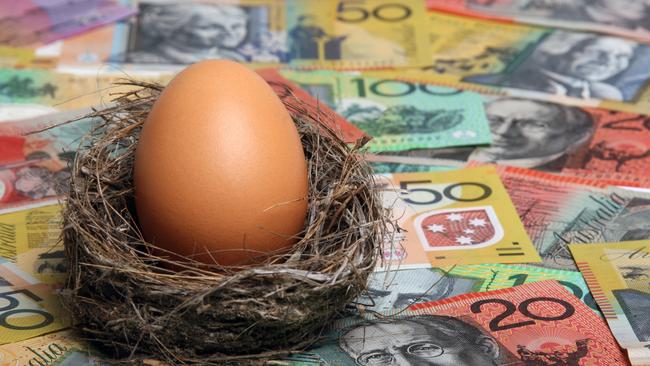Watchout for the Gap: Mount Gambier residents $20,000 poorer as new data reveals worryingly low levels of superannuation
Regional residents are urged to take three simple steps to improve their superannuation balances as data shows we’re lagging behind the city when it comes to our nest eggs.
Mount Gambier
Don't miss out on the headlines from Mount Gambier. Followed categories will be added to My News.
Shocking data has revealed people living in one of the state’s largest regional centres have some of the lowest average superannuation balances — leaving them vulnerable when they retire.
Figures from the Association of Superannuation Funds of Australia (ASFA) shows residents of the Barker electorate hold an average super account balance of just $129,121 -well below the state average of $147,198 and the national average of $147,425.
Barker has the fourth lowest level of superannuation among the 10 federal electorates in South Australia with Mount Gambier highlighted among one of the five lowest major postcodes with an average balance of just $130,767.
Naracoorte, Kingston, Robe and Millicent all had higher average levels of superannuation.
Penola was the only major South East town with a lower average of $125,114.

ASFA chief executive officer Dr Martin Fahy said historic “low wage” and “negative wage” growth coupled with increased pressures on the agricultural sector had impacted the region's superannuation pool.
“The challenge with agriculture and rural communities is long-term sustainability,” Dr Fahy said.
Dr Fahy said people working in the agricultural sector needed to find innovative ways to increase the value of the products they were producing in order to better secure their retirement.
“Unless we can move rural economies to more value add then it (will) be challenging,” he said.

Dr Fahy added regional centres must attract and retain higher earning workers to jobs “which are typically associated with graduate jobs (and) higher value added manufacturing roles”.
To comfortably retire, a couple needs to own their own home with a combined rough lump sum of $640,000.
Following the early stages of the Covid-19 pandemic, the former federal government allowed more people to gain early access to their super.
Dr Fahy said this saw nearly one million people empty their accounts.
“That’s going to put them quite far behind on their superannuation balance,” Dr Fahy said.
“You could reduce your retirement balance by as much as $100,000 if you took out $20,000.”
Though this has severe implications on younger people, people in their 40s and older who dipped into their supers may face “more dramatic” consequences.
“They’ve (older people) got even less time to make up for that amount,” Dr Fahy said.
ASFA deputy chief executive officer Glen McCrea said it was important all South Australians' checked their super balance before June 30.
Mr McCrea said three simple steps could “change the trajectory of how a super balance is tracking and make the difference between living in retirement modestly or comfortably”.
ASFA Recommends:
- Check your super balance by contacting your fund or visiting MyGov;
- Consolidate multiple superannuation accounts; and
- Check the asset allocation to ensure this aligns with your risk appetite.





